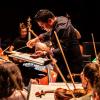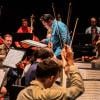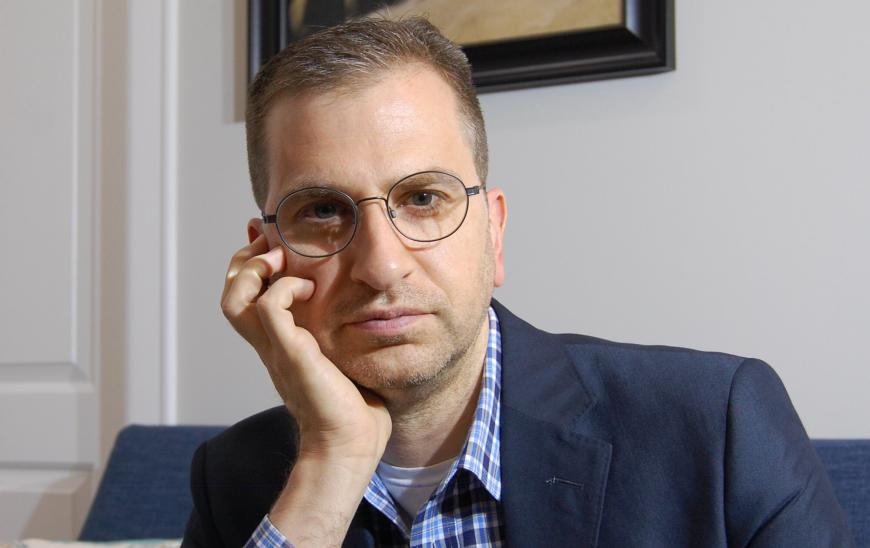
Composer Karim Al-Zand is fond of referring to himself as a “Middle Eastern Midwesterner.” His parents — an Iraqi father and a Minnesotan mother — met in college in the Minneapolis-St. Paul area and relocated to Ottawa, and Al-Zand was educated at McGill University and Harvard University, after which he began teaching composition and music theory at the Shepherd School of Music at Rice University in Houston.
As a composer, Al-Zand, 54, has ranged widely through forms and influences, with his solo, chamber, vocal, and orchestral works prompted by graphic art, fables, world music, film, spoken word, jazz, and his own Middle Eastern heritage. He’s a founding member of Musiqa, Houston’s premiere contemporary-music group, and his accolades include an Arts and Letters Award in Music from the American Academy of Arts and Letters.
Al-Zand was a natural pick for the Cabrillo Festival of Contemporary Music. His first commission there, The Prisoner (based on letters of a Guantanamo Bay prisoner), was part of the 2017 season, the first for Music Director Cristian Măcelaru, who’d taken composition lessons from Al-Zand at the Shepherd School. Cabrillo’s opening-night program this year, “Parade,” Aug. 2 at the Santa Cruz Civic Auditorium, will include the world premiere of Al-Zand’s Al Hakawati (The storyteller), fragments from an opera in progress titled The Book of Tales.
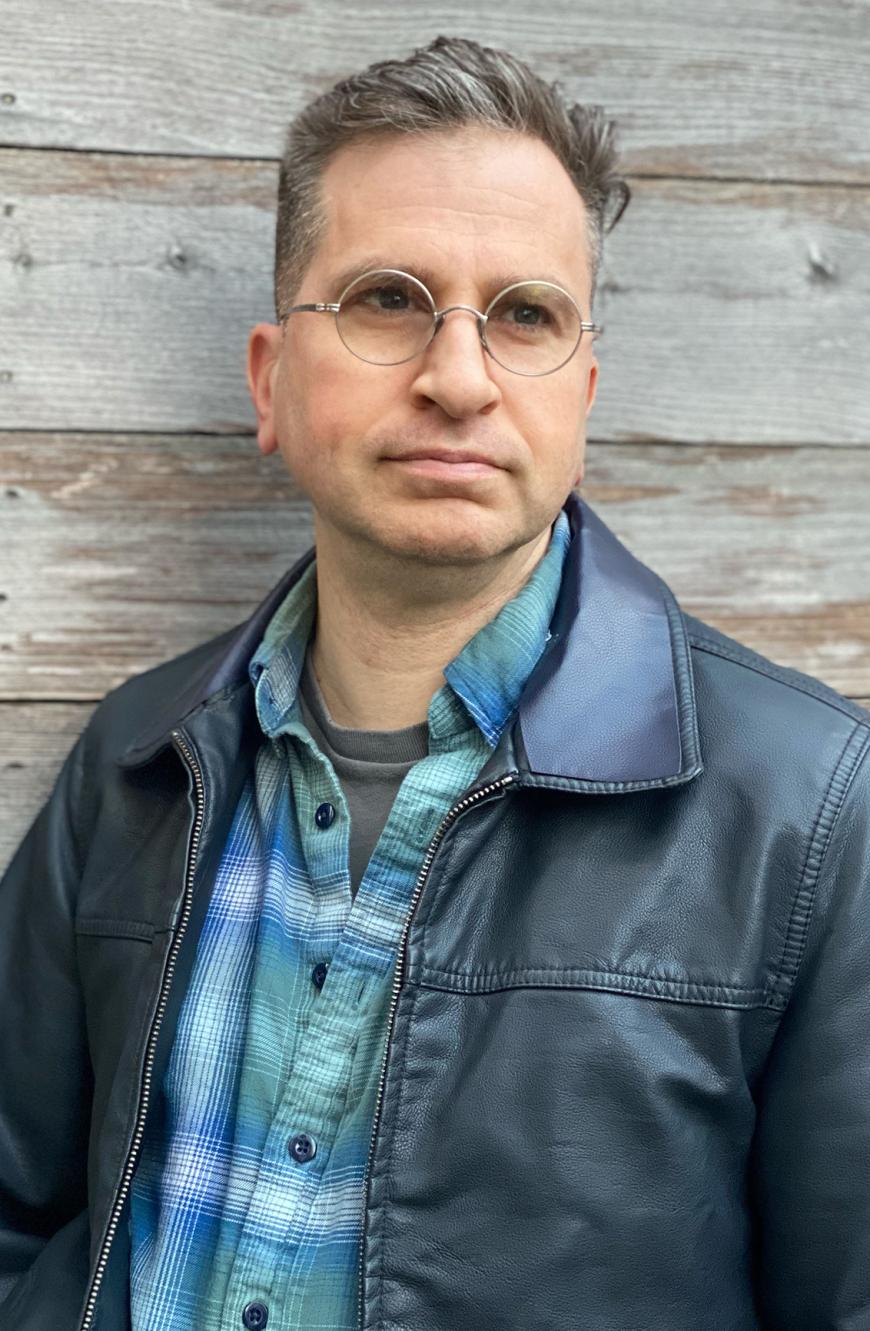
The composer spoke with SF Classical Voice from his office in Houston about his work and inspirations.
What’s Houston like for the kind of music you make?
It’s presented a lot of opportunities. When [my wife and I] first got here [in 2000], there wasn’t a whole lot. But my colleagues at the Shepherd School have made a lot of new projects in the city, and Musiqa is flourishing. Houston has a very, very lively and well-known modern art scene, so my colleagues figured, “Why not modern music?” We ended up doing several concerts at the Rothko Chapel, and that was the first time they’d had music in there.
The publicity for your opera in progress references inspiration from the One Thousand and One Nights, the collection of folk tales otherwise known as the Arabian Nights.
I’ve lived with those stories forever, it seems — whether it’s the Disneyfied version or the Richard Burton [translation] or what have you. But the real inspiration for me was this character I didn’t know about, Hanna Diyab. The first Western version of the Arabian Nights had been translated from the original by a Frenchman named Antoine Galland, and it was published around 1709 and kicked off this whole orientalist fascination. Galland was the royal court antiquarian to Louis XIV, and his [version] included some of the most famous tales, “Ali Baba and the 40 Thieves” and Aladdin and the like. His diaries made some mention of meeting someone he called “Hanna of Aleppo,” who told him stories, but no one knew who this was.
So the source of the stories was unknown.
Then, I think in 1993 or so, an old handwritten Arabic manuscript was discovered in the Vatican Library. It was basically a travel memoir by this man named Hanna Diyab, who at that point was 75 years old. He told of how he’d left Aleppo [in present-day Syria] and met a man named Paul Lucas, a nefarious Indiana Jones type of character, and [Diyab] became [Lucas’s] translator and ended up in France.
And Diyab’s true-life story appealed to you?
Because it was a wonderful connection between modern times and the 18th century and the “fantastical” world of Arabia. It dawned on me that it would be a wonderful idea for an opera to connect storytellers from different eras. And the characters Diyab meets are wonderful: Louis XIV, Paul Lucas, Antoine Galland — and Scheherazade, of course.
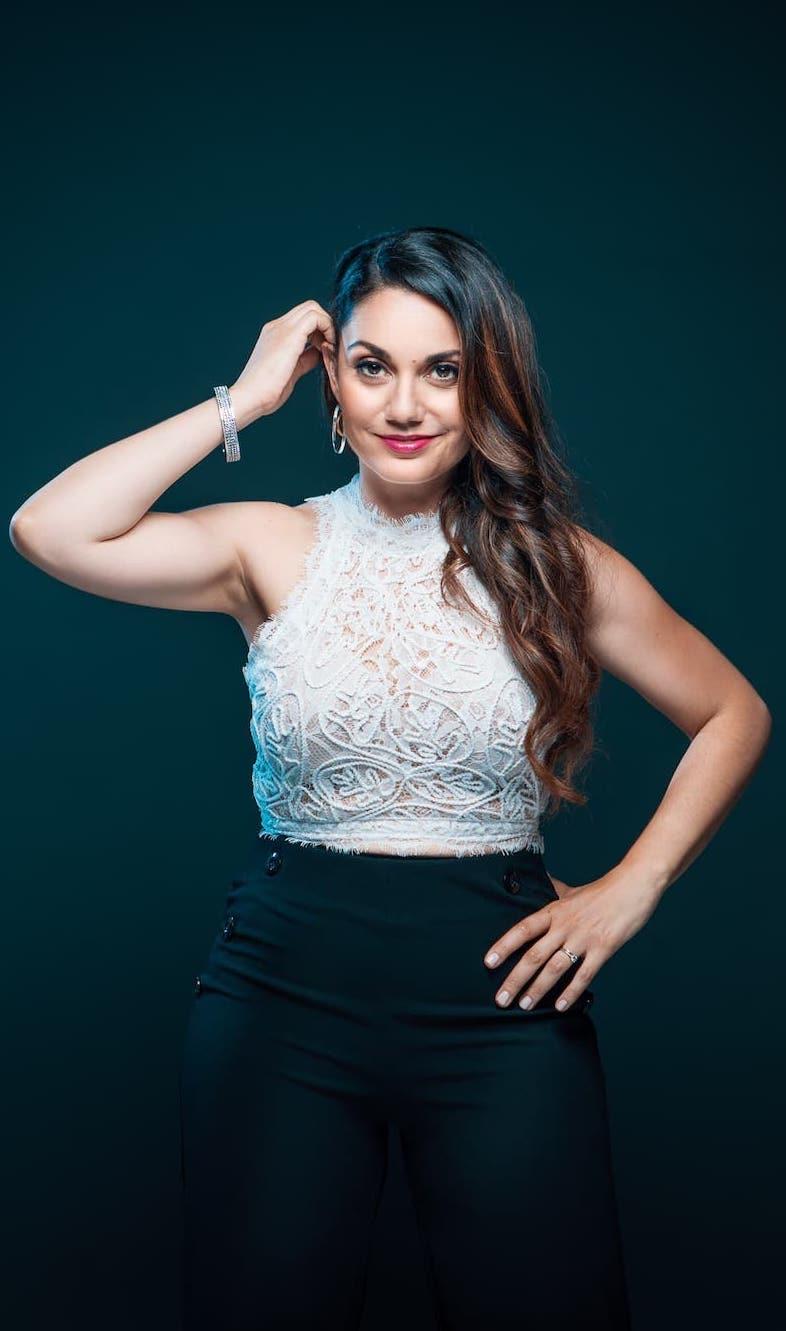
For Cabrillo, you’re showcasing three female characters.
I’ve put together four scenes, one purely for orchestra, three of them sung by Miriam Khalil, a soprano who’s also from Ottawa. [She] was part of the Canadian Opera Company’s Ensemble Studio and is on the faculty at the University of Alberta. There’s some Arabic in the texts of the songs, and her Arabic is much better than mine. The [libretto] is inspired by the Arabian Nights, but it was written by me.
Does the piece posit Scheherazade or its other female characters as feminist icons?
One of the things that struck me in the Arabian Nights is that the women characters are more intelligent, wittier, and wilier. The men don’t fare very well oftentimes; they tend to be very villainous or stupid or both.
The text takes us through time. Is there time travel in the music?
I’m not sure about time travel, but I do use a couple of instruments that are not normally heard in an orchestral setting and are more associated with Arabic music. There’s the riq, which is basically like a tambourine but with more subtlety and nuance, and a doumbek, a larger drum that sits on the knee.
To what degree did you connect with your father’s ethnicity while growing up in Canada?
He spoke Arabic but not in the house. My father played Arabic music all the time, and we ate Arabic food. I know Arabic music [when I] hear it, but I don’t know it like a practitioner knows it. My musical training is just about as Western as you can imagine, so it’s probably the Arabic themes and stories and culture that I’m most interested in. A stronger influence — and you may find this strange — is jazz, which is in my wheelhouse in terms of what I listened to and played as a kid. In fact, my doctoral dissertation was on [jazz saxophonist] Cannonball Adderley. There’s an “Arabic connection” that happens in jazz; you only need think so far as “A Night in Tunisia” and “Caravan.”
There’s an interesting note in your bio about how you connect jazz and 18th-century extemporization.
Well, I teach a class at Rice called “The Cadenza,” which is about that period and form of improvisation, ad libitum expression. It’s sort of a theory class masquerading as a performance-practice class — or vice versa. We talk about figured bass and embellishment. So there’s an obvious connection to jazz in terms of the spontaneous generation of ideas.
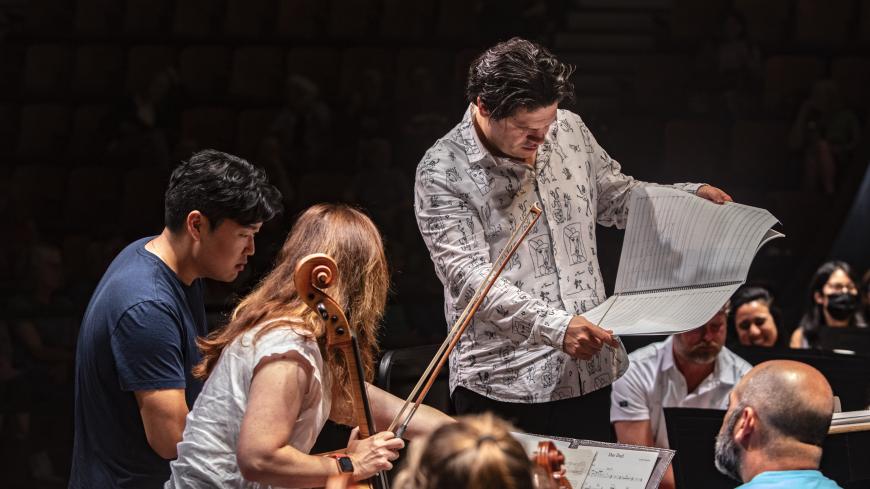
I see there are upcoming performances of your opera in progress in Cologne and in Paris.
The piece is a co-commission of Cabrillo, the WDR Sinfonieorchester Köln, and the Orchestre National de France. So those three groups will perform the piece, and Cristian will conduct all three orchestras. This is a proof-of-concept kind of thing, where I can shop it around.
And there’s my next project. … It’s a commission from the Houston Symphony, which I’m working hard on now for the upcoming season, for March 2025. It’s a single-movement piece called Al-Jazari’s Ingenious Clocks, based on a 12th-century Muslim scholar who’s thought of as the father of modern robotics. He had all kinds of clocks, including clocks that are run by dripping candles and hydraulic clocks. People are demanding more and more stories, and there are stories within stories within stories.



